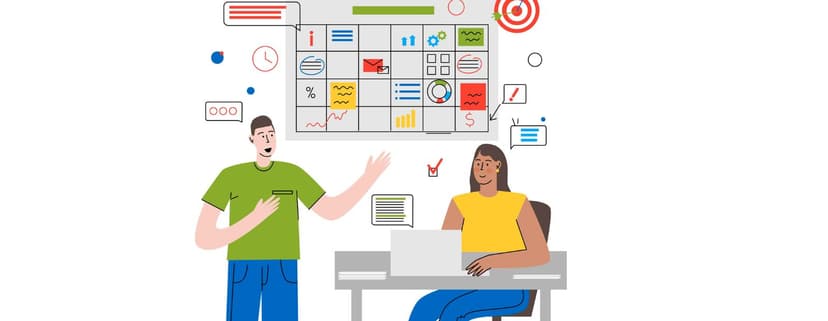How AI-Powered Test Automation is Accelerating Continuous Delivery Pipelines
In the era of digital acceleration, the demand for faster software releases has intensified. Continuous Delivery (CD) pipelines are now standard practice, enabling engineering teams to push updates to production frequently and reliably. But while automation in deployment and integration has advanced significantly, software testing often remains a bottleneck.
Artificial Intelligence (AI) is transforming this paradigm. By introducing intelligence into test automation, organizations can now bridge the gap between speed and quality, ensuring their continuous delivery pipelines are not only fast but also resilient.
This article explores the intersection of AI and test automation within CI/CD pipelines, how intelligent systems streamline workflows, improve test reliability, and help teams scale with confidence.
Understanding CI/CD Pipelines and Testing Bottlenecks
A Continuous Integration/Continuous Delivery (CI/CD) pipeline automates the software delivery process - from code commit to production deployment. Its goal is to deliver software in small, frequent, and reliable releases. However, quality assurance must keep pace with development velocity.
To understand the structure of these pipelines, CI/CD Pipelines Explained provides a comprehensive overview, detailing each phase from code integration and automated testing to deployment.
Despite automation in various stages, testing remains a challenge:
- Traditional automated tests are brittle and break with UI or logic changes.
- Manual QA introduces delays and human error.
- Regression test suites grow rapidly and become harder to maintain.
AI directly addresses these challenges, enabling more adaptive, scalable, and intelligent testing.
How AI Transforms Test Automation
AI-driven testing extends beyond mere automation by applying data-driven algorithms, pattern recognition, and predictive analytics to optimize the testing lifecycle. Here's how:
- Automated Test Case Generation: AI analyzes code, user behavior, and previous defects to create relevant test cases dynamically.
- Test Suite Optimization: Machine learning models identify redundant or low-value tests, improving execution efficiency.
- Self-Healing Test Scripts: Tests adapt automatically when UI changes occur, reducing false positives and test flakiness.
- Defect Prediction: AI flags high-risk areas in code that are statistically more prone to failure based on historical trends. As highlighted in this overview of AI-driven automated testing tools, AI empowers QA teams to shift from reactive testing to proactive quality engineering, enhancing test coverage without compromising deployment speed.
As highlighted in this overview of AI-driven automated testing tools, AI empowers QA teams to shift from reactive testing to proactive quality engineering, enhancing test coverage without compromising deployment speed.
Why AI is Crucial for Continuous Delivery Pipelines
Continuous Delivery demands speed, reliability, and adaptability - attributes that AI enhances across multiple dimensions:
- Stability in Rapid Deployment: Frequent code changes are the norm in CD environments. AI ensures tests evolve alongside these changes without constant human oversight.
- Scalability in Complex Systems: Large applications have extensive test suites. AI streamlines these by eliminating redundant tests and prioritizing critical paths.
- Resilience to UI and API Changes: Self-healing capabilities ensure that minor changes in UI elements or endpoints don’t result in broken tests or failed pipelines.
The role of AI in CI/CD pipelines goes beyond automation; it introduces intelligence and adaptability, making continuous delivery more resilient and scalable for modern DevOps teams.
Top 5 AI-Powered Automated Software Testing Tools in 2025
As AI reshapes the software testing landscape, a new generation of intelligent tools is emerging, offering greater adaptability, test coverage, and speed. Below are five standout AI-powered platforms revolutionizing how engineering teams build and scale continuous testing into their CI/CD workflows.
1. testRigor – Redefining Simplicity and Power in Test Automation
testRigor stands out as a leading AI-powered platform designed to eliminate the complexity of traditional test automation. With its unique natural language approach, test cases are written in plain English, making it accessible to both technical and non-technical team members. Its AI-driven engine auto-detects UI changes, intelligently locates elements, and drastically reduces test maintenance efforts.
Best For:
● Teams seeking scalable, low-maintenance test automation
● Organizations looking to empower QA and business users with no-code testing
● Agile and DevOps teams prioritizing rapid, high-quality releases
2. Esther.ai – Adaptive Testing Driven by Predictive Intelligence
Esther.ai offers an AI-native platform focused on predictive test optimization. By analyzing historical data and code changes, it intelligently selects the most relevant test cases to execute—reducing test suite bloat and accelerating feedback loops.
Best For:
● Enterprises managing large, evolving test suites
● Teams aiming for data-driven test execution and prioritization
3. Momentic.ai – Real-Time Testing for Agile Teams
Momentic.ai focuses on enabling real-time, AI-assisted testing across dynamic application environments. It uses intelligent crawlers and behavioral data to generate and execute relevant test scenarios with minimal setup automatically.
Best For:
● Agile teams practicing continuous deployment
● Early-stage QA teams looking for fast feedback
4. Blinq.io – Visual and Functional Testing Unified by AI
Blinq.io combines visual testing with functional testing in one AI-enhanced platform. It’s designed to detect both UI inconsistencies and workflow errors by comparing visual states and simulating real user interactions.
Best For:
● Teams with high visual standards (e.g., design-driven apps)
● Cross-browser and cross-device testing
5. Ventrilo.ai – Voice-Driven Test Creation and Automation
Ventrilo.ai introduces a groundbreaking voice-enabled interface for test creation. Teams can verbally describe test steps, which are then converted into executable test scripts by its NLP-powered engine—ideal for collaborative and accessible QA processes.
Best For:
● Teams prioritizing inclusive, intuitive QA workflows
● Rapid prototyping and minimal-script environments
Each platform brings unique strengths, ranging from natural language test creation to predictive test selection and visual verification, making them valuable assets for teams aiming to scale automation in fast-paced CI/CD environments. Whether you're an enterprise with complex workflows or a startup seeking efficiency, these tools offer the intelligence and flexibility needed to keep quality high and release cycles short
The Strategic Value of AI-Powered Testing
The strategic benefits of AI in test automation go beyond faster testing:
● Increased Confidence in Releases: Developers get real-time, accurate feedback on code quality.
● Improved Collaboration: Business and technical teams work from a unified language, bridging communication gaps.
● Operational Efficiency: Less time spent on flaky test maintenance and more focus on product innovation.
The shift from manual testing bottlenecks to intelligent test orchestration is key to enabling predictable and stable releases, even within high-frequency deployment cycles.
Challenges and Considerations
While the benefits are substantial, AI-driven test automation does come with caveats:
● Data Dependency: Effective AI models require clean, consistent historical test data to train effectively.
● Initial Setup Complexity: Introducing AI-based platforms can involve upfront configuration and process adjustments.
● Trust and Interpretability: Teams must build confidence in AI-generated recommendations and learn how to interpret results effectively.
Despite these challenges, the long-term efficiency gains and increased reliability of releases make AI-powered testing a worthwhile investment
Conclusion: Shaping the Future of Quality Engineering
As DevOps practices continue to mature and release cycles shorten, testing must evolve from a reactive gatekeeper to an intelligent collaborator. AI-powered test automation provides the precision, adaptability, and scalability required to support modern CI/CD pipelines.Solutions like testRigor not only enhance test creation and maintenance, they redefine how quality is embedded into the software lifecycle. By enabling rapid, intelligent, and low-maintenance testing, AI is not merely supporting Continuous Delivery, it’s accelerating it.






























